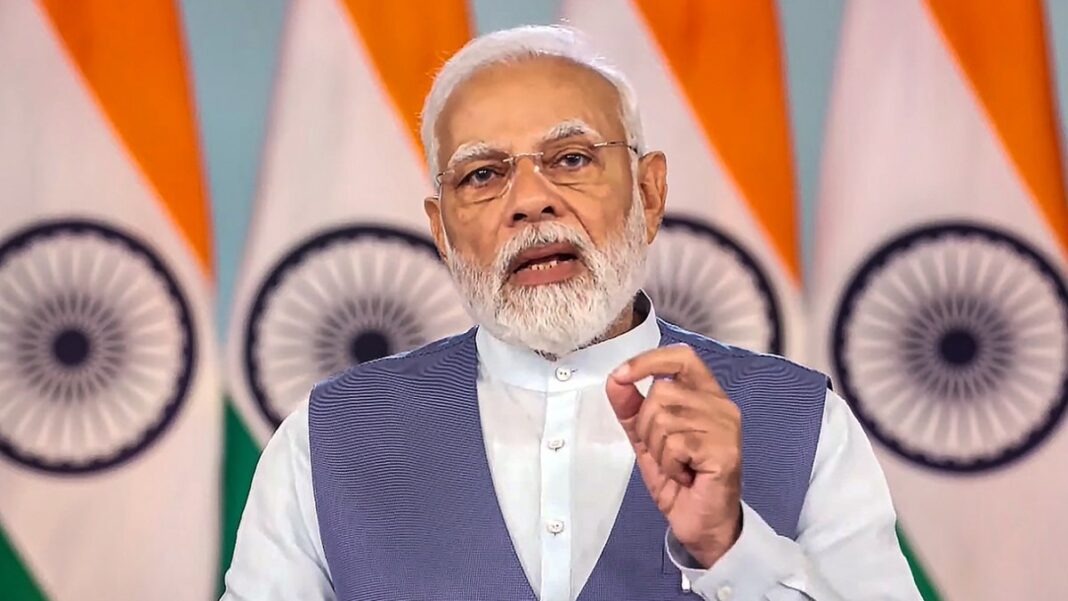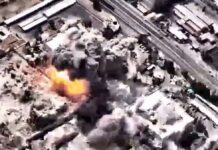X: @the_news_21
Recent remarks by Prime Minister Narendra Modi and Congress leader Mani Shankar Aiyar have reignited debates over India’s stance towards Pakistan’s nuclear capabilities, with both leaders presenting starkly contrasting views on the matter.
Addressing a rally in Odisha’s Kandhamal district, Prime Minister Modi accused the Congress party of instilling fear among Indians by repeatedly highlighting Pakistan’s status as a nuclear power. “They (Congress) create fear psychosis in the minds of Indians by reiterating Pakistan is a nuclear power,” Modi asserted, alleging that the Congress’s weak stance had prolonged the struggles faced by the people of Jammu and Kashmir. Modi further criticized the Congress for its alleged leniency towards perpetrators of terrorism, accusing the party of prioritizing political interests over national security.
In a recent interview, Mani Shankar Aiyar’s remarks added fuel to the fire, with the Congress leader suggesting that India should engage in dialogue with Pakistan out of respect for its nuclear capabilities. Aiyar’s comments drew swift condemnation from the BJP, with Modi accusing the Congress of downplaying Pakistan’s nuclear threat.
However, the Congress swiftly distanced itself from Aiyar’s statements, emphasizing the party’s historical achievements in dealing with Pakistan, notably the breakup of Pakistan and the emergence of Bangladesh in 1971 under the leadership of former Prime Minister Indira Gandhi.
Modi, in his address, took a jab at Aiyar’s assertion, questioning the quality and efficacy of Pakistan’s nuclear arsenal. “The condition of Pakistan is such that they can’t even handle the bomb (nuclear). They are now out to sell it … so that they find someone to buy it… but people know that it’s not of good quality,” Modi remarked, downplaying Pakistan’s nuclear capabilities.
Amidst the political rhetoric, Modi also took the opportunity to tout the achievements of the Atal Bihari Vajpayee-led government, particularly the successful nuclear tests conducted at Pokhran on May 11, 1998. He credited these tests with elevating India’s international standing and instilling a sense of pride among Indians worldwide.
As the Lok Sabha elections approach, the exchange between Modi and Aiyar underscores the broader discourse surrounding national security and foreign policy. While Modi emphasizes the need for a robust response to Pakistan’s nuclear threat, Aiyar’s remarks hint at a more conciliatory approach, advocating for dialogue and mutual respect.
With tensions simmering between India and Pakistan, the divergent viewpoints of leaders like Modi and Aiyar reflect the complex challenges facing India’s strategic interests in the region.








can you buy clomid without a prescription where can i buy clomiphene tablets can you get clomiphene without a prescription order cheap clomiphene no prescription can you get cheap clomid pills can i purchase generic clomiphene without insurance clomiphene brand name
With thanks. Loads of expertise!
More posts like this would add up to the online time more useful.
buy zithromax for sale – brand flagyl 400mg flagyl 200mg brand
buy semaglutide 14mg for sale – order cyproheptadine 4 mg for sale periactin 4mg generic
motilium medication – brand motilium 10mg purchase flexeril generic
buy inderal 10mg online cheap – generic inderal 20mg methotrexate 5mg drug
order amoxiclav sale – atbioinfo buy ampicillin generic
buy esomeprazole for sale – https://anexamate.com/ buy esomeprazole 20mg generic
purchase medex pill – cou mamide order generic hyzaar
buy mobic 15mg – swelling cheap mobic 15mg
best natural ed pills – fast ed to take site over the counter ed pills that work
purchase amoxicillin pills – combamoxi buy generic amoxil
fluconazole usa – on this site buy diflucan 100mg online
cenforce 100mg us – cenforce rs cenforce 100mg cheap
cialis drug – https://ciltadgn.com/# cialis 10 mg
cialis online without a prescription – cialis coupon 2019 what doe cialis look like
Thanks on sharing. It’s first quality. https://gnolvade.com/
Proof blog you procure here.. It’s intricate to on great calibre article like yours these days. I truly recognize individuals like you! Take care!! https://buyfastonl.com/azithromycin.html
More delight pieces like this would urge the интернет better. https://ursxdol.com/levitra-vardenafil-online/
This is the compassionate of criticism I positively appreciate. https://aranitidine.com/fr/acheter-cenforce/
Thanks an eye to sharing. It’s first quality. https://ondactone.com/product/domperidone/
More posts like this would persuade the online play more useful.
plavix order
With thanks. Loads of erudition! http://zqykj.com/bbs/home.php?mod=space&uid=302514
pill forxiga – https://janozin.com/ order dapagliflozin generic
buy cheap orlistat – order generic orlistat oral xenical 60mg
More posts like this would add up to the online elbow-room more useful. TerbinaPharmacy
The thoroughness in this section is noteworthy.
Tham gia cộng đồng game thủ tại Go88 để trải nghiệm các trò chơi bài, poker phổ biến nhất hiện nay.
Khám phá thế giới giải trí trực tuyến đỉnh cao tại MM88, nơi mang đến những trải nghiệm cá cược thể thao và casino sống động.
Your point of view caught my eye and was very interesting. Thanks. I have a question for you. https://accounts.binance.info/register-person?ref=IXBIAFVY
casino online real money usa
doubleu casino 80 free spins
casino room claim code
mgm gambling betmgm com casino betmgm WA
Venture into a realm of virtual thrills and real rewards. crowns coins casino offers customizable avatars for personalized gaming. Customize, play, and conquer!
Sweet Bonanza keeps the excitement rolling with endless tumbles and heart-racing bonuses. Buy sweet bonanza the feature or play naturally — either way, big wins are possible. Jump in now!
Ignite your bankroll with Wild West wildfire. how to win buffalo slots offers free spin frenzy, 27x power, and major rewards. Ride to riches!
Why wait? Chumba Casino is giving new players chumba casino big wins to kick things off. Enjoy huge variety of games and real cash prize potential today!
Trusted since 2017. Still the fastest. Still stake mines the fairest. Still the best.